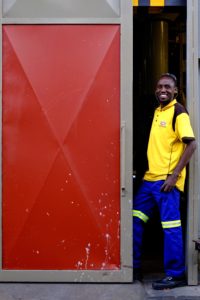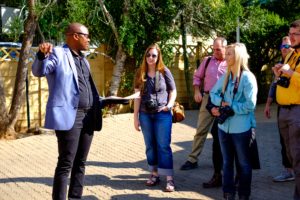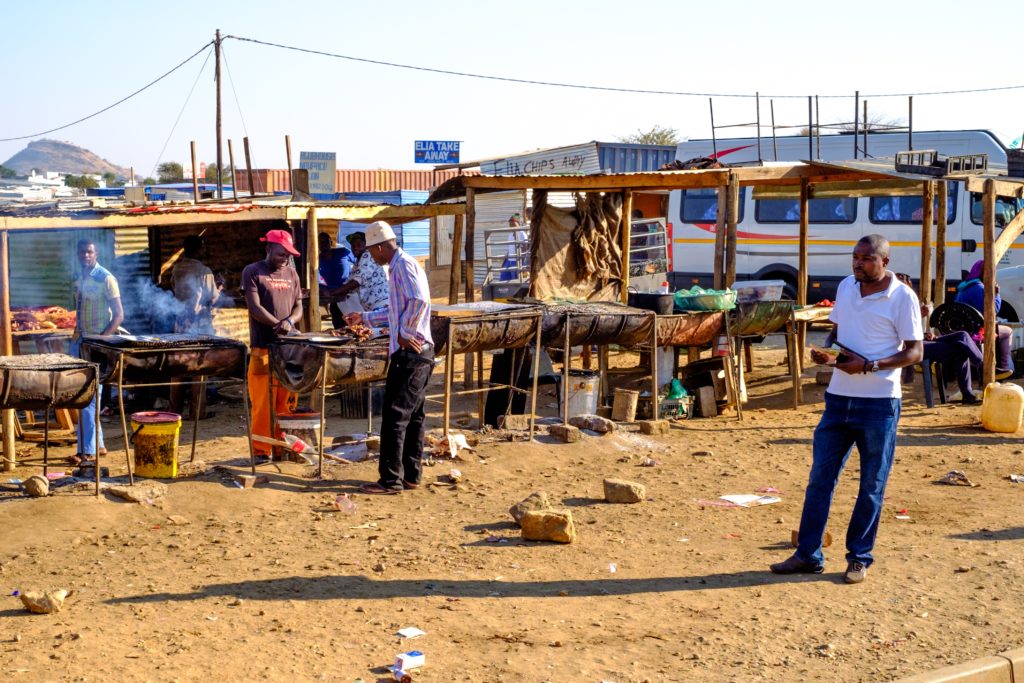Namibia is home to eleven individual principle cultural groups, which all fall into one of three categories: Blacks, Coloureds, and Whites. What makes Namibia a pluralistic society, rather than a melting pot, is the fact that these groups exist within society as a whole, while maintaining a great deal of their own unique cultural heritages.

A worker at Namibia Breweries Limited relaxes during a halt on the bottling line. The majority of laborers in Windhoek are impoverished blacks.
In a melting pot society, immigrants and minority groups are expected to assimilate into mainstream culture, leaving their own cultures to adopt the culture of the majority group. They must give up almost everything they once were to become something else entirely. The advantage to pluralism is in the sharing of art, history, music, food, education, and other aspects of life.
After Namibia gained its independence in 1990, equality among races and cultural groups was instituted. Legal pluralism was built into the Namibian constitution and is actually practiced today. Before Namibia gained its independence, racial segregation was a legal practice under South African apartheid, which was extended to Namibia after the National Party came to power in 1948. Blacks, who make up 86.5% of the population, live and work alongside whites and coloureds. There are many blacks who hold high-paying jobs or run their own businesses.
Of course, the population is very stratified to this day. The effects of apartheid are still being felt. The neighborhood of Katutura is made up of black Namibians, most of whom migrated to Windhoek from the north of the country in search of jobs. These neighborhoods were originally set up during the apartheid era as white Namibians moved the black community into slums consisting of pieced-together tin shacks and many, many shebeens, which are the neighborhood bars. Widespread alcoholism contributes to poverty in a neighborhood whose name means “The Place No One Wants to Stay.”

An executive of the Namibian, the national newspaper of Namibia, leads a tour of the newspaper’s facilities.
The positive side of cultural pluralism is that it promotes tolerance, understanding, and collaboration within a community. People become accustomed to interacting with members of very different cultural groups and are able to see each other as equal parts of a whole. Additionally, because individual groups have shared interests, they can more effectively petition politicians to address issues that concern their group.
However, pluralism can also work against a community. A “nation of nations” can be created where each group first identifies with their own culture, then as a citizen of the country as a whole. According to a representative from the CDC, one of the difficulties they face in disseminating information, testing for diseases, and administering vaccines, is the language barrier between cultures.

Katutura men are buying and selling lunch in a typical roadside market. There are many roadside businesses in Katatura including auto shops, markets, and barber shops.
Namibia is currently in a recession and unemployment is at about 50%, but the nation is developing and growing. The government and private sector are working to improve living conditions.